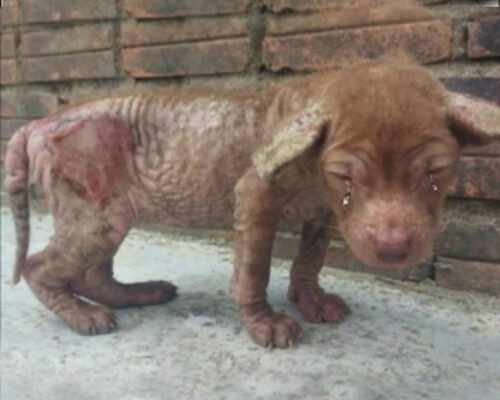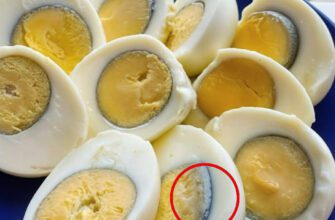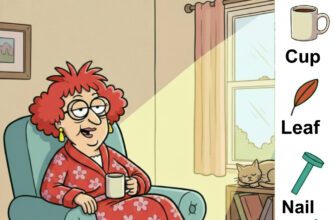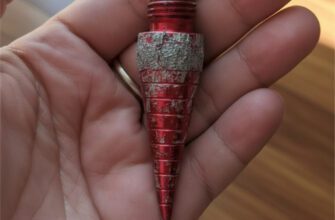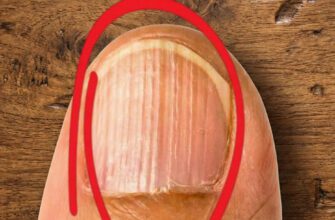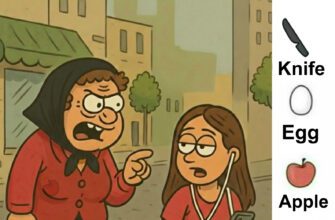He appeared here a few days ago. No one noticed him — too much to do, too little time, too loud a life to look under his feet. He was so small that he could easily hide in the shadow of an old brick wall, where the dry cement crumbles and the smell of dust underfoot.
He didn’t whine. He didn’t call. He just stood. On shaking paws, scraped to the point of bleeding, with wounds on his back that hadn’t bled for a long time, because everything that could flow out had flowed out long ago. His skin resembled crumpled parchment — dry, cracked, with gray and red spots, as if someone had wiped away the puppy tenderness and left only pain.
When I saw him for the first time, he stood with his back to those passing by. He turned away from the world. As if he knew that if he looked into a person’s eyes again, he would break. I came closer and froze.
The puppy did not turn around. He didn’t flinch. He didn’t even flinch. Only his eyes… when I stood in front of him and the wind slightly moved the dirt off his muzzle, I saw those eyes. Closed. But from the corners, along the dried fur, tears were flowing. Real. Slow, heavy. He was crying. Soundlessly, powerlessly. Like the cry of someone who no longer hopes.

And then I saw that the wall he was hiding near was covered in marks. Marks from a stick, from feet. They beat him here. Every day. For what reason, no one will say. They just passed by, just kicked, just because they could. He believed that the brick saved him. That at least it wouldn’t betray him.
But one day others came. Those who were having fun. And they pushed him away from the wall. And threw him into a puddle. And left.
I don’t know how he crawled back. I don’t know how long he stood there, unable to walk or lie down. But when I saw him, in this tiny, exhausted lump, I understood one thing: the wall no longer saves. And he was still waiting.
I took out a scarf, the same one I’ve been wearing for many years, and slowly, without rushing, so as not to scare him, I covered his fragile body with it. He didn’t resist. But he didn’t trust either. He just froze. As if he didn’t believe that this wasn’t the end. I picked him up in my arms, carefully, as if he were made of thin glass, and went home.
Every step echoed in my chest with some kind of dull thud. I felt him trembling. His skin was hot — not from warmth, from inflammation. His eyes no longer opened. I carried him — and inside I felt like I was carrying the entire burden of someone else’s pain.
At home, I spread a blanket near the radiator, put a towel under his head. He didn’t eat. Didn’t drink. Just lay there. Just breathed, intermittently and with effort.
The first night I didn’t sleep. I sat next to him. Just sat. Watched him. And prayed that he would survive.
On the third day he made a move. Tried to lift his head. I brought a wet sponge to his muzzle. He licked it. Then he froze again. But that was the first step.
I named him Ugolyok. Not because he was black — there was nothing left of his former color. But because, despite everything, he was still smoldering. Barely noticeable, but there was a spark inside him.
Then the IVs, ointments, and syringe feedings began. He endured. He never snapped. He just looked. And, for the first time, when I stroked him between the ears, he closed his eyes — not from fear, but from relief.
A week later, he tried to get up. He fell. He tried again. The second week, he took two steps. He fell. But he didn’t cry. He wanted to live.
A month passed. Ugolёk has grown new fur — short, but alive. His eyes have become brighter. He began to wag his tail. Carefully, timidly. But I cried when I first saw him run up to the bowl himself.
Today he sleeps on the couch. Stretched out, as if he had never known what concrete was under his back. He plays with a ball, jumps when he hears footsteps at the door. But if he hears the voice of a man he doesn’t know, he hides. Because memory is stronger than anything.
Sometimes he comes to the wall in the hallway. Sits down. Leans. Like then. I come up, sit down next to him, and quietly say: “You don’t need to hide anymore. You’re home.”
We don’t know how many like him are standing by the wall now. We don’t know which of them we won’t have time to catch. But if everyone stops at least once, sits down, sees — maybe one of these walls will collapse. And someone, like Ugolyok, will be able to believe again. In life. In warmth. In people.
➕
